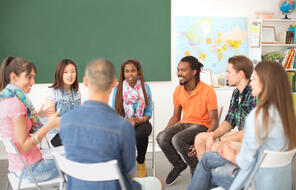Resource Library
Find compelling classroom resources, learn new teaching methods, meet standards, and make a difference in the lives of your students.
We are grateful to The Hammer Family Foundation for supporting the development of our on-demand learning and teaching resources.

Introducing Our US History Curriculum Collection
Draw from this flexible curriculum collection as you plan any middle or high school US history course. Featuring units, C3-style inquiries, and case studies, the collection will help you explore themes of democracy and freedom with your students throughout the year.
3282 Results
Defying the Nazis: The Sharps’ War
These lesson plans use the Ken Burns’ documentary "Defying the Nazis: The Sharps’ War" to explore what motivated Waitstill and Martha Sharp to help refugees.
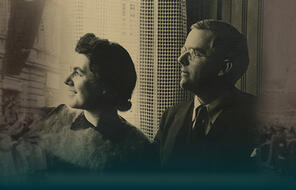
Totally Unofficial: Raphael Lemkin and the Genocide Convention
This unit explores the legacy of Raphael Lemkin, who coined the word "genocide" and drafted the Genocide Convention. A study of Lemkin's work helps students understand traditional world history themes such as sovereignty, diplomacy, and law; as well as deepen students’ understanding of political responses to mass violence.
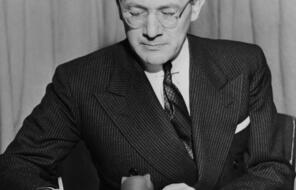
Developing Student Agency through History and Literature: Middle School Curriculum
Lead middle school students in an 18-week study of identity, membership and belonging, and civic participation through analysis of historical case studies and literature.
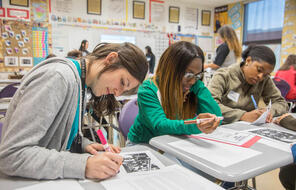
Teaching Schindler's List
Help your students be thoughtful, engaged viewers of Schindler's List with these lesson plans that foster reflection and make contemporary connections to the history.
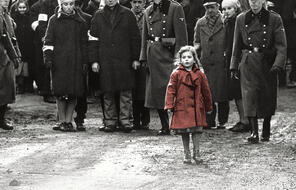
Explore the Partisans
Find interview transcripts, historical overviews, and primary source documents about a particular Jewish partisan or country.
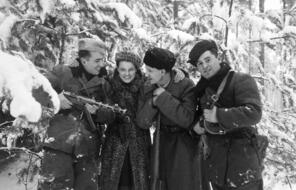
Resistance during the Holocaust: An Exploration of the Jewish Partisans
Explore the stories of Jewish partisans that stood against Nazi oppression, genocide, and antisemitism during World War II.

Understanding the Christian Roots of Antisemitism
Explore the origins and history of prejudice and discrimination against Jews with the resources in this collection.

Resources for Civic Education in California
Explore resources that meet the California History–Social Science Framework standards.

Latinx Rights in 1960s California
Explore two pivotal moments in the Latinx rights movement in California: the East LA school walkouts and the first year of the Delano grape strike.
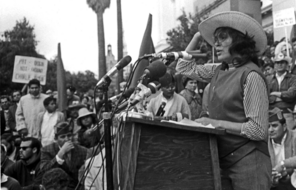
Discussing Contemporary Antisemitism in the Classroom
This unit is designed to help students in the UK reflect on how antisemitism manifests in contemporary society and what needs to be done to challenge it.
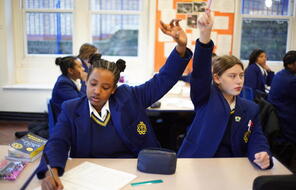
Resources for Civic Education in Massachusetts
Explore resources that meet the Massachusetts History and Social Science Framework.


